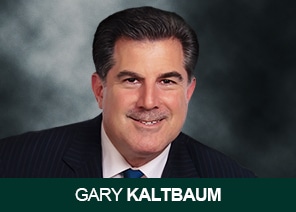How to Help Prevent Aging
There is no magic pill that will keep us from getting older. Trendy fashions, dancing like no one’s watching and laughing with friends can make you feel young and invincible, but it won’t stop the process. Aging is biological, and inevitable.
And yet, something many people fail to learn until they get older is that inflammation is one of the body’s fastest aging processes. In our youth, we may twist an ankle or have some other injury that causes swelling. Acute inflammation is the body’s way of fighting off infection by enabling white blood cells to flood the affected area to protect and heal. Throughout time, however, chronic, low-grade inflammation leads to a plethora of old-age conditions, such as cardiovascular disease, cancer and dementia. Researchers refer to this type of persistent, low-level inflammation associated with aging as “inflammageing.”1
To make matters worse, chronic inflammation can be exacerbated by bad habits we can pick up as we get older. These behaviors include:
- Smoking
- Poor diet
- Drinking alcohol
- Not getting enough physical activity
- Too much stress
- Weight gain
- Not getting enough sleep
Inflammation can remain in the body long after we start feeling better. Even if you hate taking pills, and don’t necessarily feel the benefits, anti-inflammatories work hard to reduce inflammation in the body. One of the key ways to prevent the ailments of old age is to reduce inflammation on an ongoing basis. It’s like exercising and maintaining a healthy weight – a lifelong effort that only gets tougher as we age. The types of medications physicians often prescribe for inflammatory diseases include corticosteroids, immunosuppressants and biologics.2
However, there are trade-offs that accompany getting older. For all the frustration that comes with physical changes, complicated relationships and money woes, there is wisdom, experience, and, at some point – the lucky ones – start caring more about how they feel than what other people think. Please feel free to contact us if you are looking to expand your horizons for your financial future.
Our internal organs aren’t the only ones affected by inflammageing. Research shows that chronic, low-grade inflammation contributes to the aging of our skin. As we get older, our skin loses epidermal pH, hydration and the permeability barrier that helps retain water and protect against bacteria and other pathogens. This loss of moisture causes the skin to release inflammatory signals that eventually reach the blood. Scientists are looking at ways to use topical creams to reverse age-related skin damage to prevent the development of downstream diseases caused by inflammation.3
Much like our financial situation, there are things we can do to help ward off the effects of inflammaging. Fortunately, many are the same tactics that enable a healthier lifestyle, like aerobic and resistance exercise, which can help reduce weight problems strongly associated with a pro-inflammatory state. Dietary supplements such as amino acids or protein, vitamin D and polyunsaturated fatty acids are known to have anti-inflammatory and antioxidative properties. That age-old advice of adopting the anti-inflammatory Mediterranean diet turns out to be the only behavioral factor that is consistently associated with a lower risk of frailty in old age.4
Other components of an anti‑inflammation diet include brightly colored fruits and vegetables, such as cooked tomatoes, carrots, squash and broccoli. They contain substantial amounts of antioxidants, which are believed to reduce the effect of free radicals that damage cells. Other inflammation fighters include high-fiber foods, such as legumes and whole grains (e.g., barley, oats, bran) and fish rich with omega-3 fatty acids (e.g., salmon, mackerel, sardines, tuna).5
In short, diet and exercise can help control inflammaging so that our internal organs retain youthful qualities as well as our external appearance.
1 James Kingsland. Medical News Today. 2021. “Immune aging and how to combat it.” https://www.medicalnewstoday.com/articles/immune-aging-and-how-to-combat-it. Accessed May 17, 2021.
2 WebMD. March 18, 2021. “How to Reduce Inflammation as You Age.” https://www.webmd.com/healthy-aging/how-to-reduce-inflammation-as-you-age#1. Accessed May 17, 2021.
3 Dana Smith. University of California at San Francisco. March 13, 2019. “Skin Repair Reduces ‘Inflamm-Aging’ Factors Linked to Chronic Disease.” https://www.ucsf.edu/news/2019/03/413576/skin-repair-eliminates-inflamm-aging-linked-chronic-disease. Accessed May 17, 2021.
4 Luigi Ferrucci and Elisa Fabbri. National Institutes of Health. Sept. 20, 2018. “Inflammageing: chronic inflammation in ageing, cardiovascular disease, and frailty.” https://www.ncbi.nlm.nih.gov/pmc/articles/PMC6146930/. Accessed May 17, 2021.
5 Harvard Medical School. May 1, 2020. “Quick-start guide to an anti‑inflammation diet.” https://www.health.harvard.edu/staying-healthy/quick-start-guide-to-an-antiinflammation-diet. Accessed May 17, 2021.
We are an independent firm helping individuals create retirement strategies using a variety of insurance products to custom suit their needs and objectives. This material is intended to provide general information to help you understand basic retirement income strategies and should not be construed as financial advice.
The information contained in this material is believed to be reliable, but accuracy and completeness cannot be guaranteed; it is not intended to be used as the sole basis for financial decisions.











